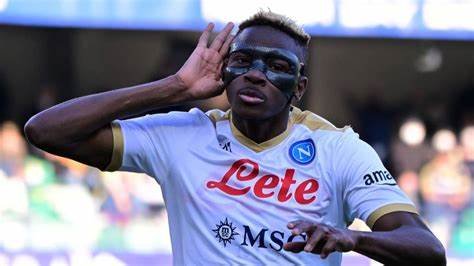Jimmy Greaves, a name synonymous with English football, was a prolific striker whose goal scoring prowess left an indelible mark on the sport. Born on February 20, 1940, in Manor Park, London, Greaves’ journey from a young talent to a footballing icon is a tale of exceptional skill, unwavering determination, and a love for the beautiful game.

Early Career and Chelsea Stint
Greaves’ footballing journey began at Chelsea, where he made his debut in 1957, aged just 17. His early years at the club were marked by an astonishing goal-scoring record. He quickly established himself as a natural goalscorer, possessing a knack for finding the back of the net with remarkable consistency. His ability to anticipate the flight of the ball, his precise finishing, and his clinical shooting made him a nightmare for defenders.
During his time at Chelsea, Greaves set numerous records, including becoming the youngest player to score 100 league goals. His performances for the Blues caught the attention of Italian giants AC Milan, who lured him to Serie A in 1961.
A Brief Stint in Italy
While Greaves’ spell at AC Milan was relatively short-lived, it provided him with a unique opportunity to experience a different footballing culture. However, he struggled to adapt to the Italian style of play, and homesickness eventually led him back to England.
Tottenham Hotspur and a Golden Era
In 1961, Greaves returned to England to join Tottenham Hotspur. At Spurs, he formed a formidable partnership with Bobby Smith, and together they spearheaded one of the most successful periods in the club’s history.
Greaves’ goal-scoring exploits continued at Tottenham. He won the FA Cup twice, the European Cup Winners’ Cup, and the League Cup. His ability to score goals from all angles and his clinical finishing made him a fan favorite at White Hart Lane.
International Career and the 1966 World Cup
Greaves also made a significant impact on the international stage, representing England on numerous occasions. He holds the record for the most hat-tricks scored for England and is the fifth-highest goalscorer for the Three Lions.
However, his most memorable moment in an England shirt came during the 1966 World Cup. Despite being the top scorer in the qualifying rounds, Greaves suffered an injury in the group stage, which ruled him out of the remainder of the tournament. This unfortunate setback paved the way for Geoff Hurst to take his place, and Hurst went on to score a hat-trick in the final as England lifted the World Cup trophy.
Later Career and Retirement
After leaving Tottenham, Greaves had brief spells at West Ham United and played non-league football for Chelmsford City and Barnet. He retired from professional football in 1978.
Post-Playing Career and Legacy
Following his retirement, Greaves pursued a career in broadcasting, working as a pundit and presenter for various television channels. He was known for his insightful analysis, witty remarks, and infectious enthusiasm.
Jimmy Greaves’ legacy as one of England’s greatest strikers is undeniable. His goal-scoring record, his impact on the clubs he played for, and his contribution to English football will be remembered for generations to come. He was a true legend of the game, and his name will forever be etched in the annals of football history.
Beyond the Statistics: The Greaves Persona
While Greaves’ goal-scoring exploits are well-documented, it’s important to delve deeper into the man behind the goals. He was known for his infectious personality, his quick wit, and his ability to connect with fans. His post-playing career as a pundit further showcased his charm and his knack for entertaining audiences.
Greaves’ impact on English football extended beyond his playing days. He was a role model for aspiring footballers, inspiring countless youngsters to dream of emulating his achievements. His dedication to the game, his professionalism, and his sportsmanship set a high standard for future generations.
The Greaves Myth and the 1966 World Cup
One aspect of Greaves’ career that continues to fascinate fans is his absence from the 1966 World Cup final. The injury that ruled him out of the tournament has led to much speculation and debate. Some argue that England might have won the World Cup with Greaves in the team, while others believe that Hurst’s heroics in the final were a pivotal moment in English football history.
Regardless of the outcome, Greaves’ contribution to England’s World Cup campaign cannot be understated. His goals in the qualifying rounds were instrumental in securing England’s place in the tournament. His absence from the final was undoubtedly a setback, but it should not diminish his overall impact on English football.

Legacy and Impact on English Football
Jimmy Greaves’ impact on English football is immeasurable. He is widely regarded as one of the greatest strikers of all time, and his record of 357 goals in the English top flight remains unmatched. His ability to score goals with ease and his passion for the game inspired generations of footballers.
Greaves’ legacy extends beyond his playing career. He was a beloved figure who was admired for his honesty, humor, and humility. His death in 2021 at the age of 81 marked the end of an era, but his memory lives on.
FAQs
What were the early signs of Jimmy Greaves’ footballing talent?
Greaves displayed exceptional talent from a young age. He was a prolific scorer in youth football and quickly rose through the ranks at Chelsea.
His natural ability to find the net and his clinical finishing were evident even in his early years.
How did Greaves’ move to AC Milan impact his career?
While the move to AC Milan was a significant one, it didn’t live up to expectations.
Language barriers, cultural differences, and the different style of Italian football hindered his adaptation to the Serie A.
His time in Italy was relatively short-lived, and he returned to England to continue his career.
What was the significance of Greaves’ partnership with Bobby Smith at Tottenham Hotspur?
The duo formed one of the most prolific strike partnerships in English football history.
Their understanding and ability to complement each other’s strengths led to numerous goals and victories for Tottenham Hotspur.
They were instrumental in Tottenham’s success in the early 1960s, winning the FA Cup and the European Cup Winners’ Cup.
To read more, Click Here










Leave a Reply